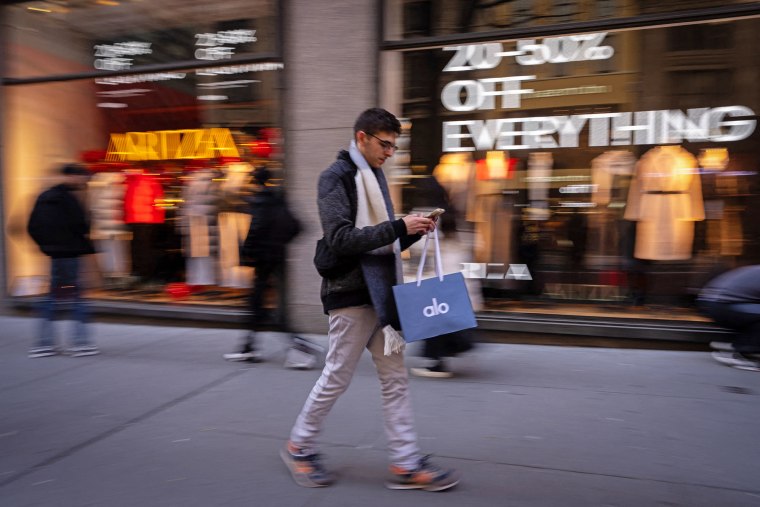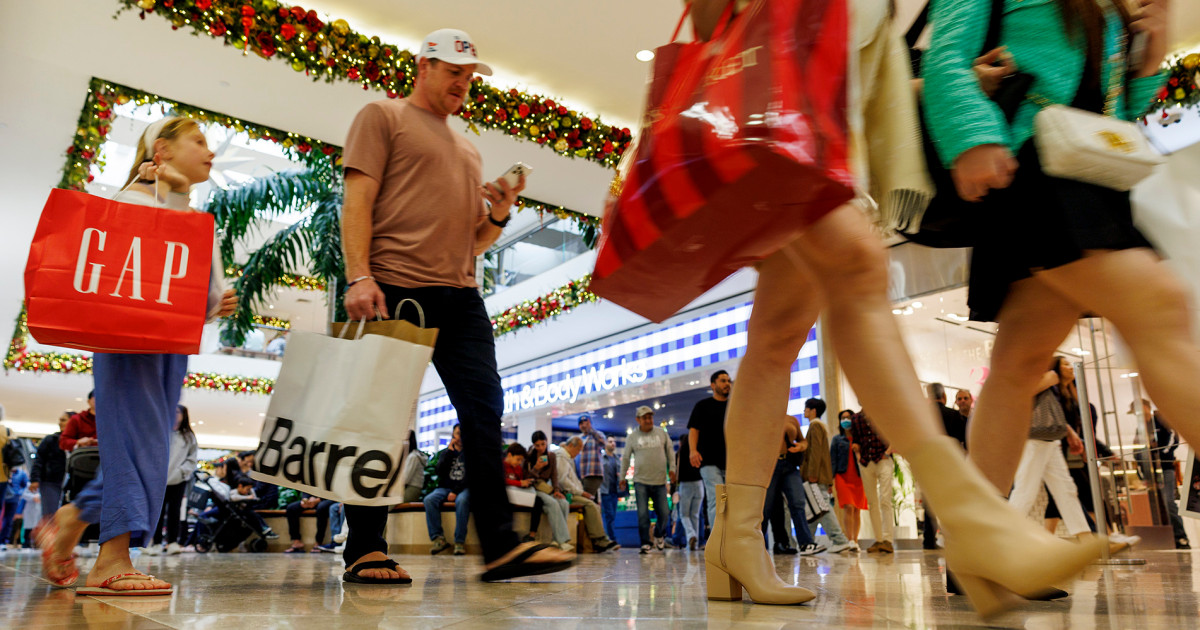Another year, another sales record: Retailers again saw purchases hit new heights over Thanksgiving weekend, even as shoppers remain cautious about where and when to spend.
U.S. consumers dropped more than $41 billion online alone in the five days spanning Thanksgiving and Cyber Monday, up 8.2% from the same period a year ago, Adobe Analytics said Tuesday. In-store and digital retail sales tracked by MasterCard rose 3.4% on Black Friday since last year, with e-commerce purchases surging 14.6%.
“The consumer turned out, the consumer opened their wallets,” said Neil Saunders, managing director of the retail consultancy GlobalData. But there are caveats, he cautioned.
The biggest is one that retailers have reckoned with for months: Many shoppers still “feel that things are quite gloomy,” Saunders said, so “they’re really concentrating on bargains, deals and offers because they want to get that great value for money.”

Holiday season discounts have been deep and plentiful, and with steadily more retailers selling online, there’s now more competition for consumers’ dollars, said Vivek Pandya, lead analyst at Adobe Digital Insights. In fact, online prices were 3% lower during the Thanksgiving sales period than last year, he said.
“You just have so many options for the consumer,” Pandya said. “That’s a beneficial pricing environment for consumers across the income spectrum.”
Not all retailers are benefiting equally, however, and not all browsing leads to the cash register.
An estimated 126 million people shopped in person during the holiday weekend, the National Retail Federation said, up almost 3.7% from more than 121 million a year ago. Yet MasterCard said in-store sales rose only 0.7%, and while the 197 million online and in-person shoppers it tallied for the holiday weekend were the second-highest on record, last year’s period saw about 3 million more.
Shoppers lately are scoping out big-ticket items at four or five retailers before making a purchase, sometimes visiting physical stores before placing an order online, Jessica Moulton, a McKinsey senior partner, told CNBC on Monday. She added that some brick-and-mortar retailers are noticing softer foot traffic this season.
Even so, many retailers are seeing sales near historic highs, with the annual sales growth outrunning the 2.6% inflation rate. That indicates many consumers are shelling out beyond what it takes just to keep up with price increases.
Black Friday is all about deals, but consumers have been more receptive to deals all year.
Neil Saunders, managing director, GlobalData
It’s a similar story with leisure experiences.
For the first time since the pandemic, moviegoers powered the U.S. box office to a new Thanksgiving weekend record, as people flocked to the cinemas to catch “Moana 2,” “Wicked” and “Gladiator II.” Total ticket sales surged to $420 million, far outstripping the previous $315.6 million high notched in 2018.
Travel volumes also soared, with airport security officers screening more than 3 million passengers Sunday alone — many more than the 2.3 million on the same day a year ago and besting the prior record, set on the Sunday after July Fourth.
Hayley Berg, lead economist for the flight-finder company Hopper, told CNBC this week that about half of its users were planning to spend the same time or more traveling in the next six months as they did the previous six — especially Gen Z and millennial consumers.
“Even as they spend a little bit more on goods, they are still maintaining that income set aside for travel and experiences,” she said.








